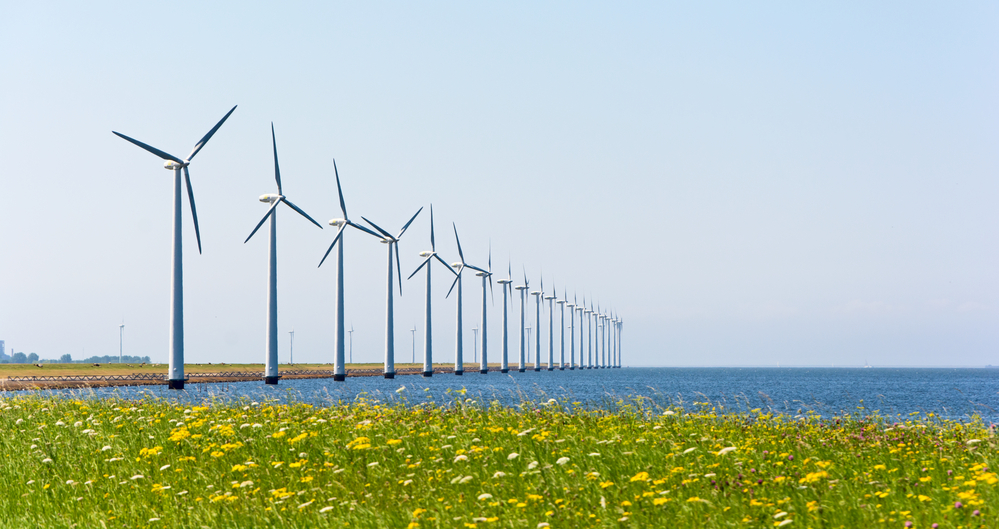Wind turbines to ensure clean energy? Sure, but not in our backyard. Driving electric cars? Yeah, maybe not. What are the Dutchies’ attitudes about the changing climate?
A 2020 survey conducted among 3,700 Duch people by Statistics Netherlands showed that while people of the lowlands recognise the threat of climate change, they do rather little to act on it.
Causes of climate change
What the majority of Dutchies agree on is this: the climate is changing (94%) and we can do something about it (75%). However, they differ in their opinions on what causes climate change.
The majority believe that climate change is caused entirely (12%) or mainly (48%) by humans, but 27% think that humans and nature play an equally important role in causing climate change.
On the other hand, a small proportion thinks that climate change is caused mainly (5%) or entirely (1%) by nature. Nearly 6% of the Dutch don’t believe in climate change at all.
A transition towards green energy
When it comes to moving towards cleaner energy, Dutchies are big fans of wind turbines. Over 70% are in favour of constructing new ones and more than 50% believe that these should be built both on- and offshore.

However, when it comes to installing wind turbines in living environments, the Dutch are a bit more reluctant — only 21% are in favour and 31% are against it.
READ MORE | Renewable energy in the Netherlands: everything you need to know
Dick ter Steege, the chief editor at Statistics Netherlands, is understanding of this. “People are afraid of noise pollution and that their view will be ruined. That’s why so many say: wind turbines are fine, but not in my backyard,” he tells RTL Nieuws.
Another thing that is becoming more popular is solar panels. Nearly 30% of Dutch homeowners report having them on their roofs and about 20% consider buying them.
Not so environmentally friendly diet
The study finds that only 2% of Dutch people are fully vegetarian and 3% eat fish but no other meat. A fully plant-based diet is still very uncommon, with only 0.4% of the Dutch following this type of diet.

The vast majority of vegetarians and vegans are made up of highly educated people from the Randstad, aged between 25 and 35 years.
In contrast, half of the Dutchies eat meat every day or at least five to six times a week. “We are still eating, on average, 39 kilos of meat per year. That is not getting any less,” Ter Steege says.
Animal welfare and health over the environment
While reducing meat intake has clear benefits for the environment, one striking finding is that people most often indicate animal welfare as a reason to give up meat completely.
On the other hand, individuals who eat meat four days a week and less reduce their meat intake mostly for health reasons or simply because they don’t feel the need to eat meat or don’t like the taste of it.
Transportation
Only 2% of households have plans to purchase fully electric cars in the coming two years. “Most of those electric cars belong to business or leasing companies and not people themselves,” says Ter Steege.
He explains that this lack of interest in electric cars may be caused by their high price and the obstacle of having to recharge the battery often.
READ MORE | Renting a car in the Netherlands: driving in Amsterdam and beyond
The study (conducted before the pandemic) finds that Dutchies like to fly — half reported that they took a plane in the past 12 months, with every fifth person flying to a country outside Europe.

“Moreover, two-thirds of the Dutch don’t even think about stopping flying for the climate,” says Ter Steege. One can only hope that this will change with the introduction of new train connections from Amsterdam to Vienna, Prague, Zurich, and other major cities across Europe.
The bigger picture
While we can all take action to reduce our environmental footprint, changing individual behaviour is not a silver bullet that’s going to make all of the climate change go away — the government, for one, has a part to play as well.
READ MORE | Shell has to reduce its CO2 emissions by nearly a half, court in The Hague rules
The survey found that 40% of the Dutch think that the government policy on climate could be stricter.
However, more than half agree with the current government policy. One of the government’s goals is to reduce the Netherlands’ greenhouse gas emissions by half by 2030 and cut them by 95% by 2050.
Climate change is an issue that is high on the agenda all over the world and tackling it will require the participation of not only citizens and governments but also other actors. Whether the Netherlands will meet the goals of its climate policy remains yet to be seen.
What do you think about the Dutch attitudes towards climate change? Tell us in the comments below!
Editor’s Note: This article was originally published in June 2021, and was fully updated in September 2023 for your reading pleasure.

